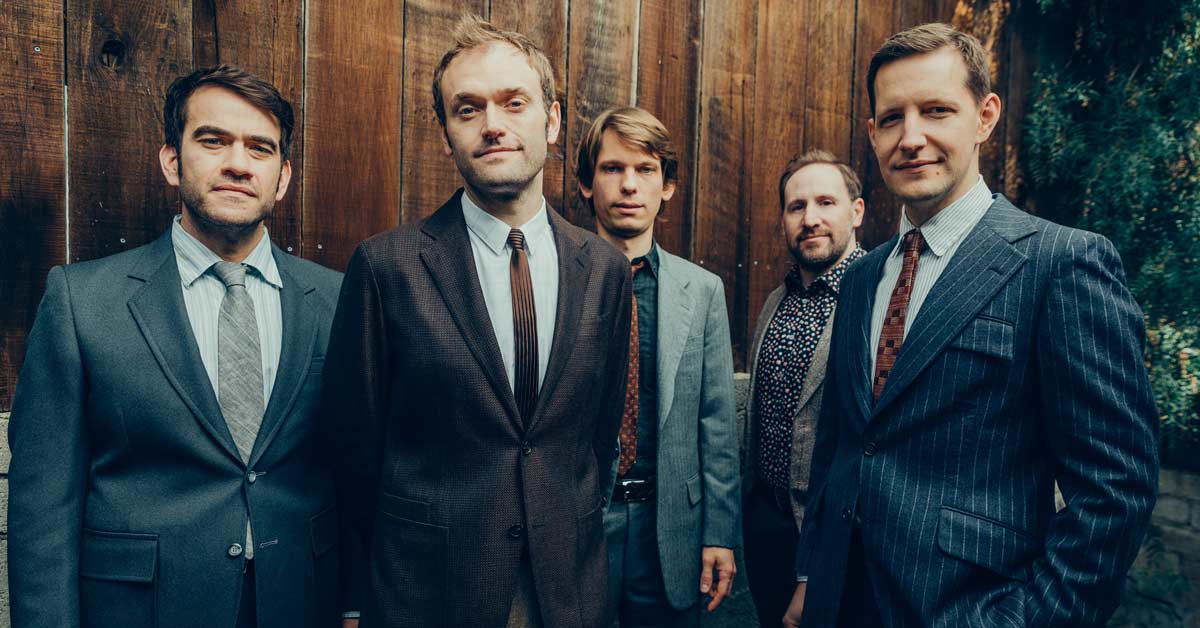Alongside drummer Joe Westerlund, guitarist Josh Oliver, and bassist Clint Mullican, Andrew and Emily indulged novel structures and textures. “Better Way,” a kind-hearted meditation on online meanness, shifts slowly from a bluegrass trot into a spectral marvel before an immersive acoustic drone frames a new future. The gentle harmonies of “Belly of the Beast” eventually turn into a tangle above baying strings, Andrew and Emily guiding each other through the shared perils of whatever comes next.
These songs, after all, started with a fundamental shift in Emily and Andrew’s life. In the first few months after Ruby’s birth, they split the day into shifts: Emily minded Ruby during the waking hours, while Andrew sat beside Ruby all night, watching their firstborn sleep as he quietly strummed strings. In those wee hours, he allowed his writing to wander, capturing the uncanny sense of wonder and intrigue that pervades the darkest parts of night. “If I didn’t have Ruby in my hands, I had an instrument in them,” remembers Andrew. “And watching Ruby sleep, being surrounded by that mystery at night, led to a feeling of magical realism in these songs. I used melodies and ideas I’d never use.”
Long-lost relatives, for instance, gather with him around the crib in communion during “Lonely Love Affair,” mentoring him through this staggering upheaval. He expresses the fears of a new father, alleviated by the possibility and goodness he sees in his sleeping baby. These songs allowed Marlin and Frantz to take the chance Kaufman proposed because they’re about the value of doing exactly that, of trusting in grand acts borne of personal uncertainty.
Likewise, Emily’s dual turns here as lead singer are absolute breakthroughs, equally wrought from the confidence of past success and the excitement of present energy. As Emily coolly considers the ups and downs of mere existence, “Upside Down” pirouettes from the country thump of Neil Young in 1971 to the surging epiphanies of Radiohead a quarter-century later. Andrew wrote “Beautiful Flowers” after crashing into and presumably killing a butterfly with his car—this quiet triumph is a history of the automobile that doubles as a poignant chronicle of the modern tragedies and miracles we normalize. It reckons with climate change and the fatal side- effects of our industrious, industrialized nature with beguiling humility. Emily delivers all this with a gospel conviction, astral horns slowly unspooling beneath her as a reminder of the fragility at work.
With harmonies so easy they sound like kitchen-table talk, Andrew and Emily sail through “New Star,” an ode to the self-sacrifice and renewal of trying to create something, like a child, that might make the world better. Revolutionary kindness, social responsibility, collective understanding: These simple but staggering ideas are the unseen threads of Watchhouse, a miraculous expression of measured domestic protest.
In our era of recalcitrant typecasts and incessant cultural churn, it is rare to witness anyone press ahead into the unknown while holding fast to what’s best about their past, too. That’s what Watchhouse have done with their self-titled debut. Emily and Andrew have discarded neither their tenderness nor thoughtfulness; instead, they’ve enriched those essential qualities by submitting to the risks of new sounds, structures, and inputs. They’ve embraced surprising notions that make their steadfastness stronger.





